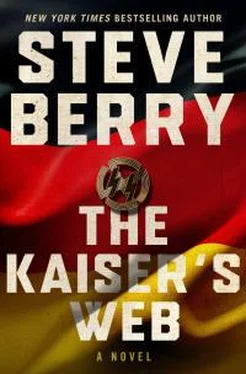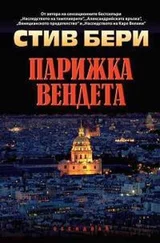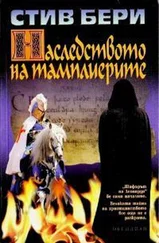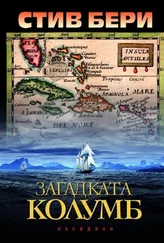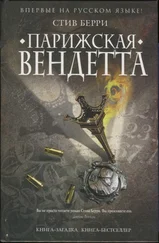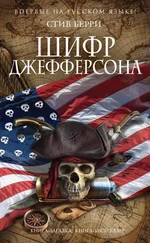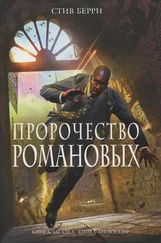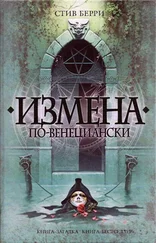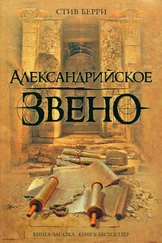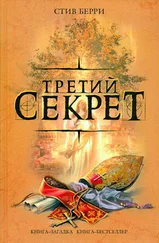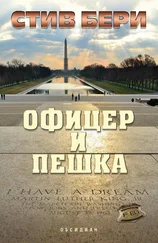Silence at this point could be fatal.
So tomorrow had to happen.
But her conflict with Kurt brought into focus the dilemma many German homes faced. Differing philosophies, differing objectives. Men and women, children and parents, perched on opposite ends of the political spectrum. Such a shame German politics perennially divided families.
And that realization chilled her.
Yet there was something else—sad but true.
Her husband frightened her even more.
CHAPTER SEVENTEEN
CHILEAN LAKE DISTRICT
6:40 P.M.
Cotton drove the jeep into town. A road sign a hundred yards back identified the hamlet as Los Arana. The asphalt highway split the place nearly in half, houses to the south, shops north. Lime trees dotted a central plaza. The cone of the volcano loomed in the distance, perfectly centered between the domes of a church. The streets were quiet but it was early evening, the workday over.
He parked near a busy café.
Inside, they ordered food and studied the photographs they’d freed from their frames at the hacienda.
“This is at least partial confirmation of what Eisenhuth was told,” Cassiopeia said.
“Provided they’re real.”
“It won’t be hard to determine.”
No, it wouldn’t.
He turned his attention back to his sandwich. The spicy meat was hearty, the bread fresh. He hadn’t realized how hungry he was. His gaze caught a man and a small boy at another table, the man using a napkin to clean the kid’s face of sauce. Thirty-seven years had passed since the two navy officers had come to the house the day after his tenth birthday. He’d sat in the living room beside his mother while they explained that the submarine his father had commanded had sunk with all hands lost. His stomach always churned at the memory of his mother’s tears. His father’s body was not recovered, the sub’s wreckage never found, until decades later. He still missed his father, but had come to terms with the loss. Life had taught him that everyone made choices in their life. Good and bad. He’d made his share.
His father, too.
Cassiopeia lifted the photos from the table and studied each image again. “This is proof Martin Bormann and Eva Braun survived the war.”
He sipped his bottled water. “But what happened to that little boy? Did he grow up to become Theodor Pohl?”
“That’s a good question.”
He’d meant what he said in the car. He was glad that Cassiopeia was with him. If not for Danny Daniels appearing on Sunday, she’d already be back in France after a long weekend in Denmark. That seemed the extent of their relationship. A few days here and there. Then, occasionally, a job together. It certainly made for great reunions. But he had to admit, he’d begun to miss her when she wasn’t around. He had few friends in the world—a result of both the nature of his former occupation and the isolation he’d intentionally sought by moving to Denmark in the first place. His son, Gary, remained close and visited at least three times a year.
Which he really enjoyed.
The boy had a good head on his shoulders. They’d talked some about his future, and he’d been surprised when the seventeen-year-old mentioned the navy as a possible career. Sure, he’d chosen that path, too. But that was a boy reacting to the death of a father, trying to honor him in any way possible. What was Gary’s motive? Hard to say. His son was tight-lipped. But there was still a year or so to go before any decision would have to be made. He had to admit, though, having his boy join up would be wonderful.
The front door creaked open and two uniformed carabineros swaggered into the café. Both were young and armed with holstered pistols. They strolled to the counter and spoke with the man who’d taken their food orders a few minutes back. Cotton kept both policemen in his peripheral vision as he finished off the last bites of his sandwich.
The two turned and motioned at Cotton and Cassiopeia.
The man behind the counter nodded, and they walked over.
“Excuse me,” the one carabinero said in English. “We need a word.”
Cotton wiped his mouth with a napkin. “And what word would that be?”
A smile formed on the man’s lips. “Weapons. Are you armed?”
He did not like where this was going. “We are.”
“Please place your guns on the table.”
“We are sanctioned to carry our firearms,” Cassiopeia said.
“That may be so,” the other carabinero said, “but we want the weapons on the table.”
“And if we refuse?” he asked.
The man drew his pistol and pointed it directly at him.
“Then we shall do this another way.”
CHAPTER EIGHTEEN
LÖWENBERG
STATE OF HESSE, GERMANY
10:15 P.M.
Theodor Pohl studied the figure sitting across from him. He was a portly stump of a man with sparse brown hair and the face of a walrus. But he’d been assured that Waltraud Klein, a senior judge in the local state court, was quite reasonable, and at the moment he was in need of a negotiable jurist.
“I must say, Herr Pohl, it is an honor that you have taken the time to speak with me,” his guest said.
A tinge of tobacco accompanied Klein’s words. He hated the scent. It was the smell of habit, of weakness. But he held his emotions in check. This man did not need to know what he truly felt.
“I asked you here, to my home, as I am aware of the trial that is forthcoming next week in your court.”
A city official had been accused of incendiarism after writing an inflammatory letter to the chairman of the Central Council of Jews. In the letter he urged the man to leave Germany and take the entire council membership with him. Such statements had long been banned by German law, so the official was promptly arrested. The case had generated national attention, quickly involving many of the political parties in the debate.
“It will be quite a trial,” Klein said, seemingly proud of the fact he would be involved.
He decided to get to the point. “I am told that you broke away from mainstream politics long ago.”
Klein nodded. “Past governments were far too friendly with the communists for me.”
“On that point we agree. I, too, believe Helmut Kohl and his successors were Marxist sympathizers.” He paused a moment, hoping he’d gauged this man correctly. “I am also told that you are a believer.”
Klein’s pudgy face revealed nothing. The jurist simply stared back through oily eyes. “My father was a member of the Nazi Party. So was my grandfather. They are two men I greatly respect.”
“As you should. But are you a believer in what they stood for?”
He needed to know.
“I am.” There was pride in the declaration.
“I am also told that many in the judiciary feel the same way.”
“There are others who do not think the past so bad.”
Numbers flashed through his mind. Statistics he’d memorized. Recent national polls indicated that 42 percent of Germans believed the National Socialists once offered both good and bad qualities. Sixty percent were convinced that prejudice against the Jewish people would continue. Forty percent acknowledged themselves as right-wing sympathizers. Twenty-seven percent thought Germany superior to other nations, and another 17 percent were undecided. A solid one-half of the populace liked the sound of Fatherland, while a quarter felt there were still Nazis living among them.
He rattled off the percentages to Klein, then said, “Most telling is that 7 percent of Germans would actually vote for Hitler again. Nearly 30 percent believe that, without the war and the Jewish problem, he would have been labeled a great statesman. It irks me that a succession of governments have masked their own incompetence by perpetuating the belief that somehow we still owe the world for what happened eighty years ago.”
Читать дальше
